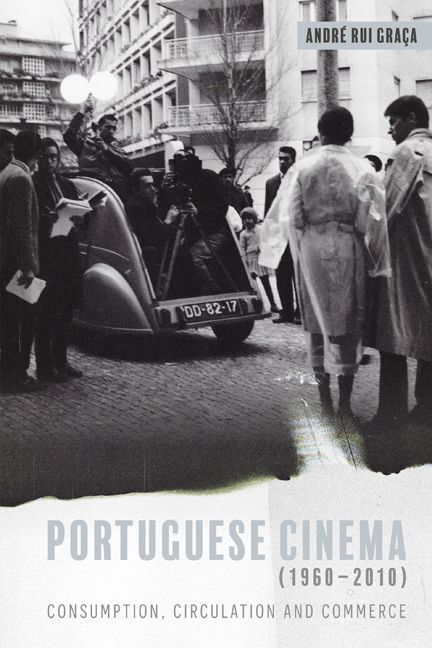Book contents
- Frontmatter
- Contents
- List of Illustrations
- Foreword
- Preface
- List of Abbreviations
- Introduction
- 1 The ‘Unsuccess’ of a National Cinema
- 2 Spectators and Contrasts in Culture
- 3 Visibility, Artistic Prestige, and Circulation
- 4 Portuguese Cinema Laws (1971–2006)
- Conclusion
- Appendix 1
- Appendix 2
- Bibliography
- Index
2 - Spectators and Contrasts in Culture
Published online by Cambridge University Press: 06 April 2021
- Frontmatter
- Contents
- List of Illustrations
- Foreword
- Preface
- List of Abbreviations
- Introduction
- 1 The ‘Unsuccess’ of a National Cinema
- 2 Spectators and Contrasts in Culture
- 3 Visibility, Artistic Prestige, and Circulation
- 4 Portuguese Cinema Laws (1971–2006)
- Conclusion
- Appendix 1
- Appendix 2
- Bibliography
- Index
Summary
The place of Portuguese cinema within Portuguese culture
This chapter assesses the commercial fragility and the ‘difficult’ visibility of Portuguese cinema. In so doing, it focuses mainly on the relationship between domestic audiences and Portuguese cinema. Having set out the research problem, the chapter provides an overview of the cultural scope of Portuguese cinema to assess its aesthetic and thematic trajectories and map out its place among Portuguese culture in general and other artistic expressions in particular. More than briefly enumerating a history of Portuguese contemporary cinema, this chapter ultimately focuses on what audiences were getting from both sides, namely filmmakers and producers of mass culture.
Portuguese history and culture and cinema: Depictions of the past – both recent and remote
Ever since the making of the 1908 film The Assassination of the Duke of Guise, filmmakers from all around the world have known that cinema, like theatre or literature, may serve as a vehicle for historical representation. One of the possible topics of a national cinema is either the semi-fictional re-enactment of historical events or the portrayal of the consequences of a nation's past. In the case of Portuguese cinema, however, the weight of history should be understood in a broader sense – that is, not just as historical narrative but also as an embrace of other aspects of Portuguese life and mentality, especially before the era of globalisation.
The analysis of the intersection between history and film in Portugal is an already well-explored line of enquiry that has captured the attention of a number of scholars, such as Baptista, Areal, Cunha, Monteiro, and Ribas. This overlap, or meeting, between a country's history and film is by no means original or uncommon, given that all national cinemas incorporate this dimension. For the purpose of this book, the nature of this connection should be nonetheless asserted, given that it will serve as a foundation on which this book will build the structure to explore a more complex set of problems as related to the reception and marketability of Portuguese cinema.
Tiago Baptista, in his seminal work on Portuguese cinema as ‘nationally correct’, argued the case that, despite the profound political changes, the tendency to unveil the country's reality through the camera lens and the quest for ‘Portuguese-specific’ qualities persisted.
- Type
- Chapter
- Information
- Portuguese Cinema (1960–2010)Consumption, Circulation and Commerce, pp. 43 - 132Publisher: Boydell & BrewerPrint publication year: 2021



